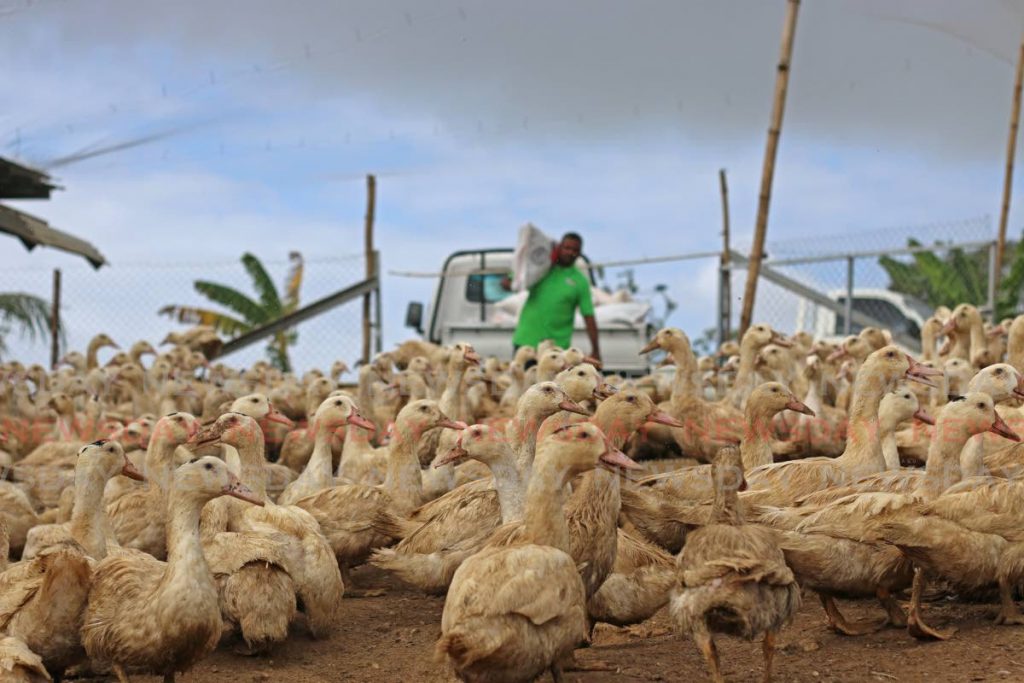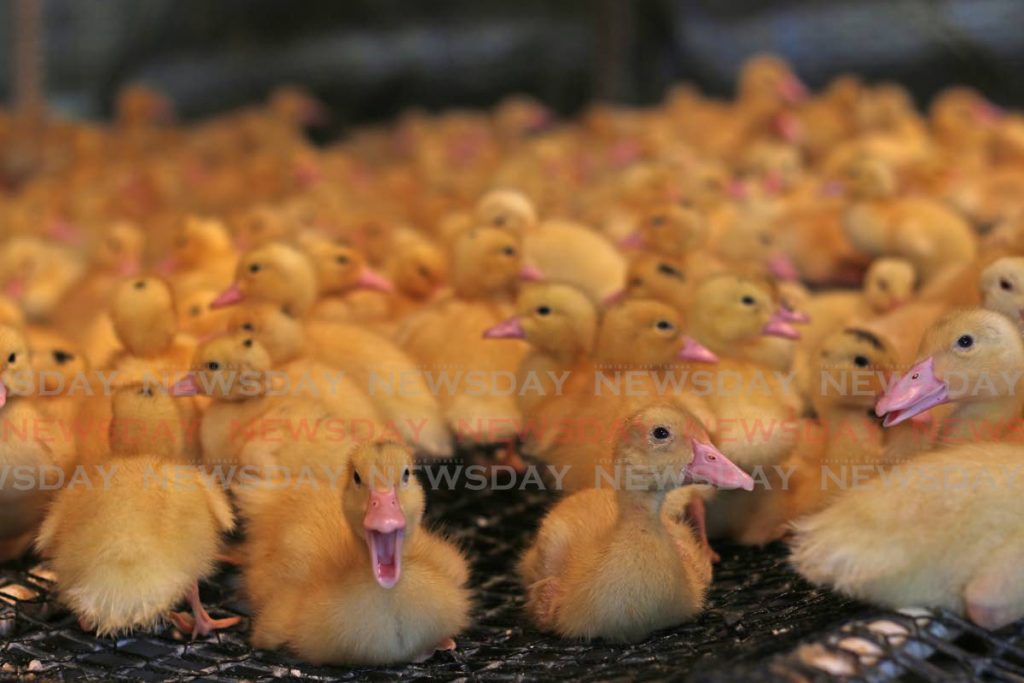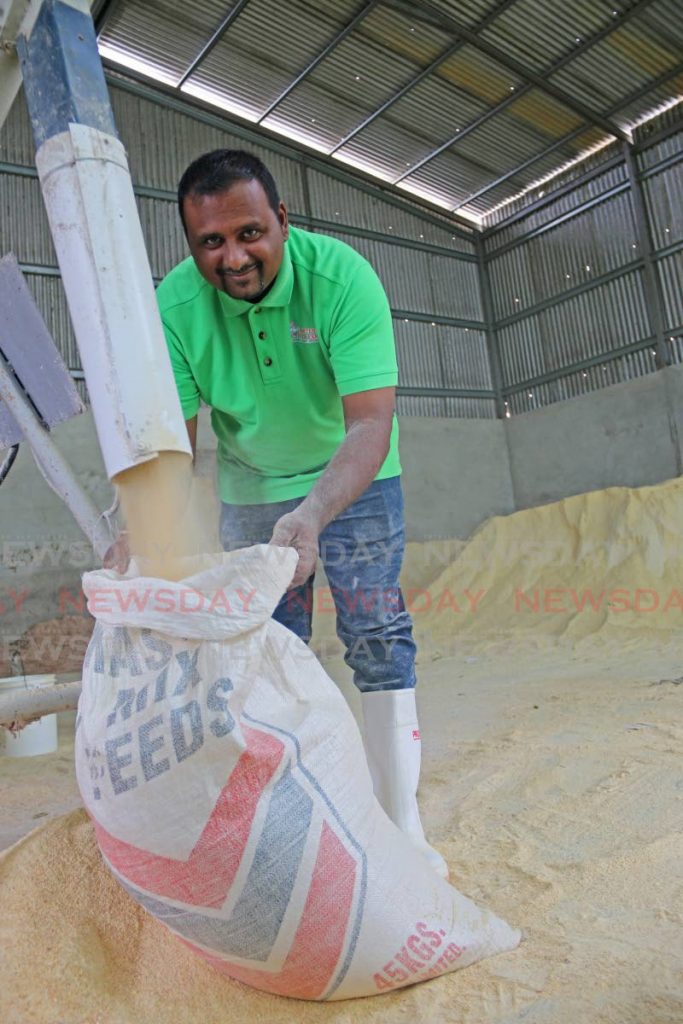Masters farm cuts fat from ducks' diets

Amar Samlal has a deep respect for nature.
As the owner and CEO of Masters Duck Farm, in Freeport, the 47-year-old implements a “zero-tolerance” policy for the mistreatment of any animal at his farm.
“You don’t disrespect any animal on this farm, no matter what it is. It can be a frog or a caiman – which might eat the ducks – you don’t ill treat or disrespect these animals. They are living entities that God put here on earth,” Samlal said to Business Day at the farm which is located on Rixon Trace along Arena Road.
Having grown up on a farm, Samlal has always had a keen interest in animal husbandry and agriculture. He knew he was always destined to be a farmer and answered his calling when his wife, Areesa, was gifted 50 ducklings from a family member in 2005. The couple decided to sell the animals and were pleased with the sale, so decided to reinvest the money they made. "We saw the profit and then bought 100 ducklings. We were selling about 100 a month when we started for the first couple of years. Now, we average around 5,000 duckings per month."
But Samlal's love for animals means the business of preparing livestock for food can sometimes be heart-breaking especially slaughtering the ducklings he raised. “You sometimes grow very close with some of these animal,” he said.

With his workers also forming strong bonds with the farm animals, Samlal often has to remind them about breaking the attachments. However, there is a special group of ducks spared from the slaughter. “They are blind and so they are off-limit. You are not allowed to touch or kill these special birds.” Samlal said the blind ducks are allowed to grow old and die in peace. In operation for the last 15 years, he said the farm’s mission is to deliver quality ducks to customers, rather than quantity. “We took a different approach to the duck industry. While everyone was focusing on quantity, we focused on quality. That is how we improved our market share.”
With duck meat being fatty, Samlal said it's a regular complaint by customers. It's why he tries his best to differentiate his product. “We pride ourselves that our duck has minimum fat in it and can be used for curry, baked, stewed or barbecued.”
Customers have responded positively, with orders also coming in from Tobago. Samlal said depending on a farmer's approach, they can unsustainably raise the ducklings by feeding them poor diets which include things like chocolates and biscuits – which results in fatty duck meat.

Considering the farm started mixing its own feed to ensure quality about eight years ago, Samlal said accessing feed was not an issue. However, for the first time in years, a shortage in feed has caused prices to increase. "For the past two weeks, we have been paying a 25-30 per cent price increase."
He’s also a stickler for health and safety standards. Samlal said officials from various government agencies including vets frequently visit and inspect the premises. “Sanitisation was done years before covid19 and we will continue to do so.”
Because of covid19, however, the 30 staff members which he previously employed was reduced by half. He hopes to resume with full manpower once the pandemic is managed.

Samlal said he and other like-minded duck farmers intend to form an association through which they can lobby for greater state support to help the industry become more self-sufficient. Things he’d like to see include hassle-free loans to farmers with a proven track record, grants and other incentives. They’d also like assistance with importing eggs. “We have to charter a plane (to bring in eggs) because demand has been growing so much.”
Samlal doesn’t believe in a “hand-to-mouth” approach – just giving money to farmers wouldn’t help. A whole lot more can be done to assist farmers, though, and the government shouldn’t be giving away things for free.
There’s great potential for the industry, Samlal said, including export to other parts of the region, but farmers need that extra assistance to help them achieve economies of scale.

Comments
"Masters farm cuts fat from ducks’ diets"